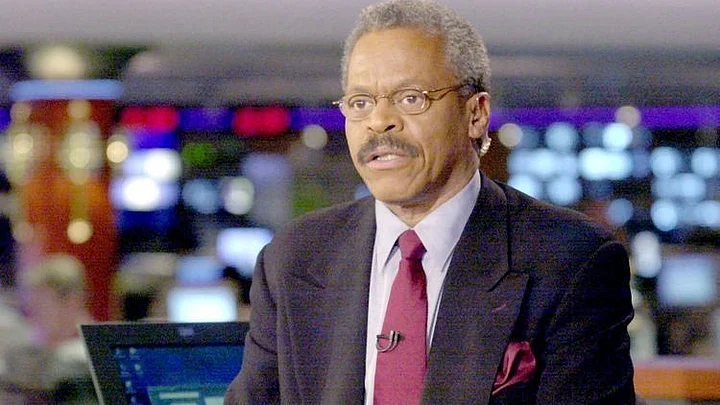Shaw died of pneumonia at a hospital in Washington.
He was the channel's first chief anchor and was with the network when it launched on 1 June 1980. He retired from CNN after more than 20 years on 28 February 2001, according to the channel.
During his long career, Shaw reported on some of the biggest stories of the time, ranging from the student revolt in Tiananmen Square in May 1989, the First Gulf war from Baghdad in 1991, and the 2000 United States presidential elections.
"CNN's beloved anchor and colleague, Bernard Shaw, passed away yesterday at the age of 82. Bernie was a CNN original and was our Washington Anchor when we launched on 1 June 1980," Chris Licht, CNN Chairman and CEO, said in a statement on Thursday, 8 September.
He Remained Calm Under Pressure
Shaw was known for remaining calm under pressure. It was a hallmark of his Baghdad coverage when the US led its invasion of Iraq in 1991 to liberate Kuwait, with CNN airing stunning footage of airstrikes and anti-aircraft fire in the capital city.
“In all of the years of preparing to being anchor, one of the things I strove for was to be able to control my emotions in the midst of hell breaking out,” The Week quoted Shaw as saying in a 2014 interview with NPR. “And I personally feel that I passed my stringent test for that in Baghdad.”
Shaw was born on 22 May 1940. He had a four-year stint in the Marine Corps, and worked as a reporter at CBS and ABC News, before taking on the chief anchor role at CNN when the network began in 1980.
He started his career as a radio reporter in Chicago, during which he interviewed Dr Martin Luther King Jr, who told him, "One day you'll make it, just do some good," Shaw recalled.
His first stint in TV was as a political reporter for CBS where he helped cover the Watergate scandal.
(With inputs from CNN and The Week.)
(At The Quint, we question everything. Play an active role in shaping our journalism by becoming a member today.)

